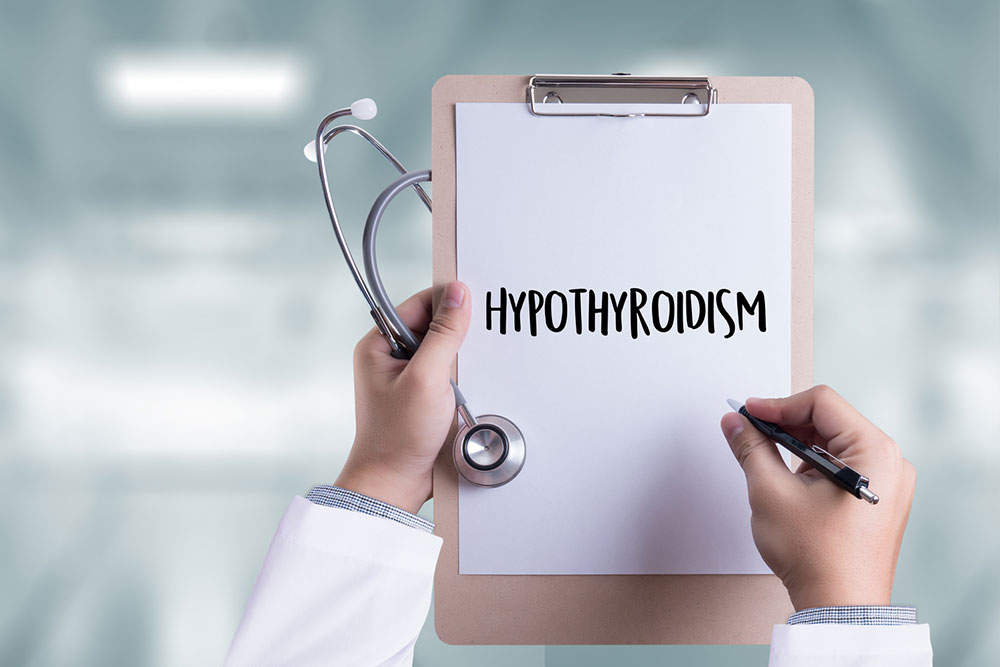Comprehensive Guide to Thyroid Disorders: Causes, Symptoms, and Effective Treatment Strategies
This comprehensive guide explores thyroid conditions, covering causes, symptoms, and treatment options. Understanding these aspects helps in early diagnosis and effective management of hypothyroidism and hyperthyroidism, preventing severe complications and improving overall health through personalized therapies.

Comprehensive Guide to Thyroid Disorders: Causes, Symptoms, and Effective Treatment Strategies
The thyroid gland, a small butterfly-shaped organ located at the base of your neck, plays a crucial role in maintaining your overall health by regulating various metabolic processes through hormone production. Despite its small size, thyroid health issues are among the most common endocrine problems worldwide, affecting millions of individuals across different age groups and backgrounds. Understanding the causes, recognizing the symptoms, and knowing the available treatment options for thyroid conditions are essential steps toward managing health effectively and preventing severe health complications.
Thyroid disorders predominantly involve an imbalance in hormone secretion—either producing too much (hyperthyroidism) or too little (hypothyroidism) of thyroid hormones. These conditions can significantly impair bodily functions, leading to diverse symptoms that often overlap with other illnesses, making diagnosis challenging. This comprehensive guide explores the causes of thyroid problems, how to recognize their symptoms, and the most effective treatment strategies to help maintain optimal thyroid health.
Understanding the Causes of Thyroid Disorders
The origins of thyroid problems are multifaceted, involving autoimmune reactions, genetic factors, environmental influences, and lifestyle choices. Autoimmune disorders are among the leading causes of thyroid dysfunction, particularly Hashimoto's Thyroiditis and Graves' Disease. These conditions arise when the body's immune system mistakenly attacks the thyroid gland, impairing its ability to produce hormones correctly.
Autoimmune Reactions: In autoimmune thyroid diseases, the immune system generates specific antibodies that target thyroid tissue. In Hashimoto's Thyroiditis, this attack leads to inflammation and gradual destruction of thyroid cells, resulting in hypothyroidism. Conversely, in Graves' Disease, antibodies stimulate the thyroid gland excessively, leading to hyperthyroidism.
Iodine Deficiency or Excess: Iodine is an essential element required for thyroid hormone synthesis. Both deficiency and excess iodine intake can disrupt normal hormone production. Insufficient iodine levels often cause goiter and hypothyroidism, especially in areas with iodine-deficient soil. Excess iodine, however, can trigger hyperthyroidism in susceptible individuals.
Surgical Interventions and Radiation: Surgical removal of the thyroid gland, usually due to nodules or cancer, inevitably leads to hypothyroidism, requiring hormone replacement therapy. Radiation therapy, particularly in the neck region, increases the risk of thyroid cancer or damage to the gland, affecting its function.
Genetic and Congenital Factors: Some individuals are born with congenital hypothyroidism or hyperthyroidism, caused by developmental abnormalities or genetic mutations affecting thyroid development or function.
Pituitary Tumors: The pituitary gland secretes Thyroid Stimulating Hormone (TSH), which regulates thyroid activity. Tumors in the pituitary can lead to abnormal TSH levels, causing either overproduction or underproduction of thyroid hormones.
Environmental Exposures and Lifestyle: Exposure to environmental toxins, radiation, certain medications, and stress can influence thyroid health, sometimes precipitating disorders.
Recognizing the Symptoms of Thyroid Conditions
The clinical manifestations of thyroid disorders are diverse and depend on whether the hormones are too high or too low. Recognizing these signs early aids in prompt diagnosis and management, preventing serious health consequences.
Symptoms of Hypothyroidism (Low Thyroid Hormones)
When the thyroid gland produces insufficient hormones (T3 and T4), the body's metabolism slows down considerably. Common symptoms include:
Chronic constipation
Drier and coarse hair
Memory problems or difficulty concentrating
Dry, scaly skin that may become rough
Persistent fatigue and low energy levels
Slowed heartbeat and reduced physical activity
Lower blood pressure
Noticeable weight gain despite no change in diet
Frequent feelings of irritability or mild depression
Muscle cramps and stiffness
If left untreated, hypothyroidism can escalate into more severe health issues such as dangerously low body temperature, heart failure, and significant mental sluggishness, affecting daily functioning and quality of life.
Symptoms of Hyperthyroidism (Excess Thyroid Hormones)
In contrast, an overactive thyroid causes an accelerated metabolism, resulting in symptoms such as:
Rapid heartbeat or palpitations
High blood pressure
Excessive sweating and heat intolerance
Anxiety, nervousness, and restlessness
Insomnia or difficulty sleeping
Frequent diarrhea
Bone density loss, increasing fracture risk
Enlargement of the thyroid gland, commonly known as goiter
In severe hyperthyroidism cases, symptoms can escalate to life-threatening conditions like fever, fainting, jaundice, irregular heartbeat, shock, and profound weakness, requiring immediate medical attention.
Modern Approaches to Managing Thyroid Disorders
Advancements in medical science have led to diverse treatment options for thyroid conditions. Effective management depends on accurate diagnosis, the severity of the disease, and individual patient factors.
Thyroid Hormone Replacement Therapy: For hypothyroidism, synthetic thyroid hormones like levothyroxine are the primary treatment, providing the missing hormones to normalize metabolic functions. This therapy requires regular monitoring to avoid overdose, which can cause symptoms like rapid heartbeat or shakiness. Pregnant women particularly need tailored doses to support both maternal and fetal health.
Iodine Therapy for Hyperthyroidism: Radioactive iodine is a well-established treatment for hyperthyroidism, especially in adults. It selectively destroys overactive thyroid tissue, helping to normalize hormone levels. However, careful dosing is essential since excessive iodine can cause hypothyroidism, requiring subsequent hormone replacement therapy. Pregnant and breastfeeding women are generally advised to avoid radioactive iodine due to potential fetal or infant exposure.
Iodine Supplements: In cases of mild hyperthyroidism or iodine deficiency-induced problems, controlled iodine supplementation can be beneficial. Proper medical supervision is critical to prevent overcorrection and adverse effects.
Anti-thyroid Medications: Drugs such as methimazole or propylthiouracil suppress thyroid hormone synthesis, often within a few months. Higher doses work faster but may be associated with side effects like allergic rashes, nausea, or liver issues, requiring careful oversight by healthcare providers.
Surgical Intervention: Surgical removal of the thyroid gland, known as thyroidectomy, is generally reserved for cases of large goiters causing compressive symptoms, thyroid cancer, or nodules unresponsive to medication. Post-surgery, patients need lifelong thyroid hormone replacement therapy. In managing malignancies, surgery is often combined with radioactive or external beam radiation therapy.
Each treatment plan is personalized, considering the patient's age, severity of disease, co-existing health conditions, and preferences. Regular follow-up and laboratory testing are essential to ensure optimal management and prevent complications.
In summary, understanding thyroid health, recognizing symptoms early, and choosing appropriate treatment modalities can significantly improve quality of life and prevent long-term health issues. Consulting with an endocrinologist or healthcare professional is vital for accurate diagnosis and tailored therapy.





